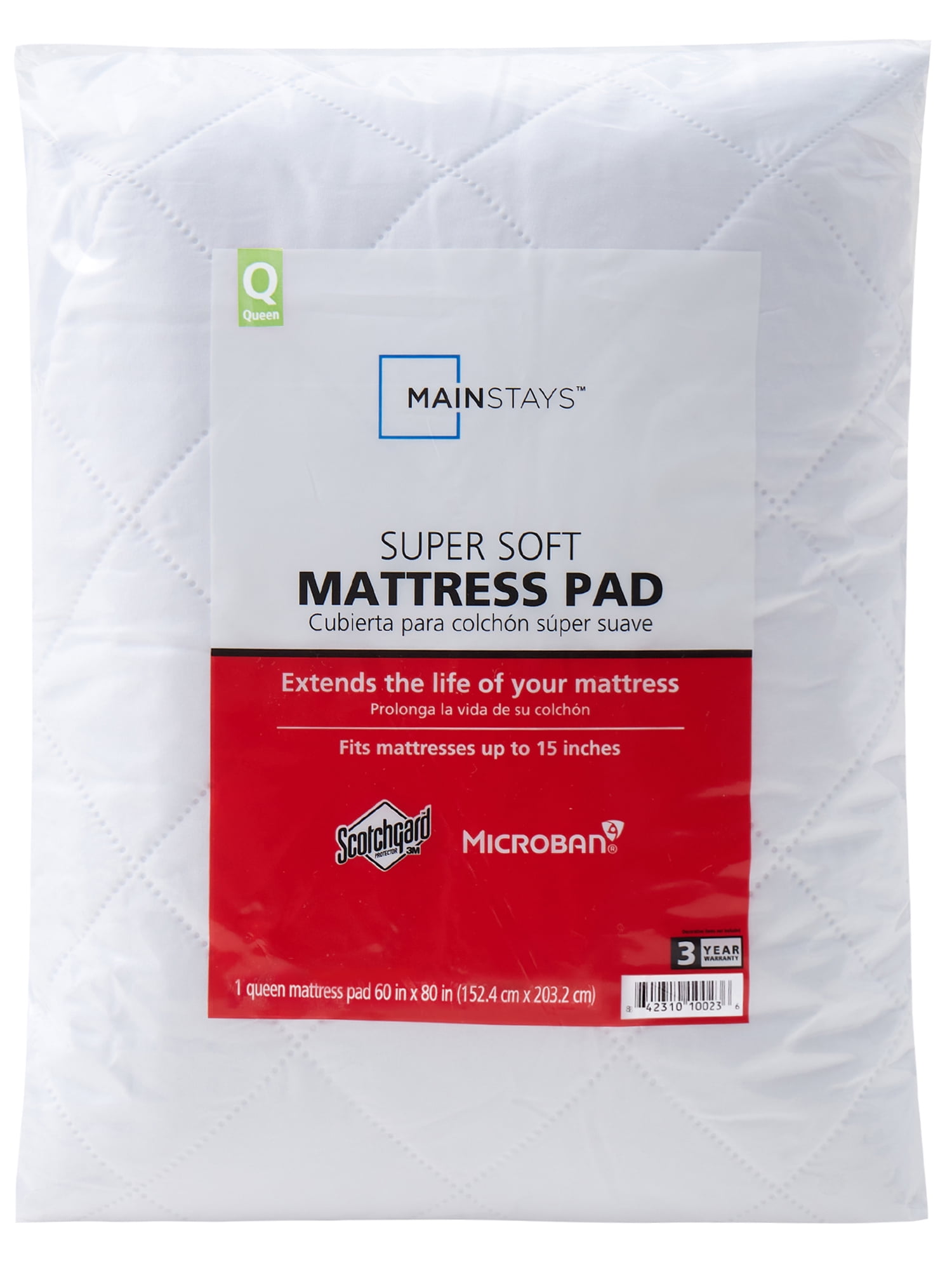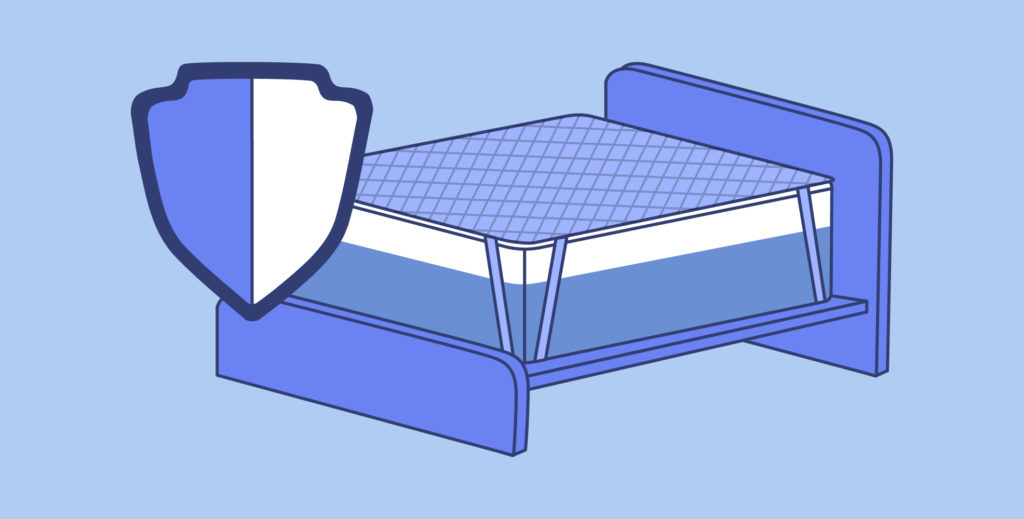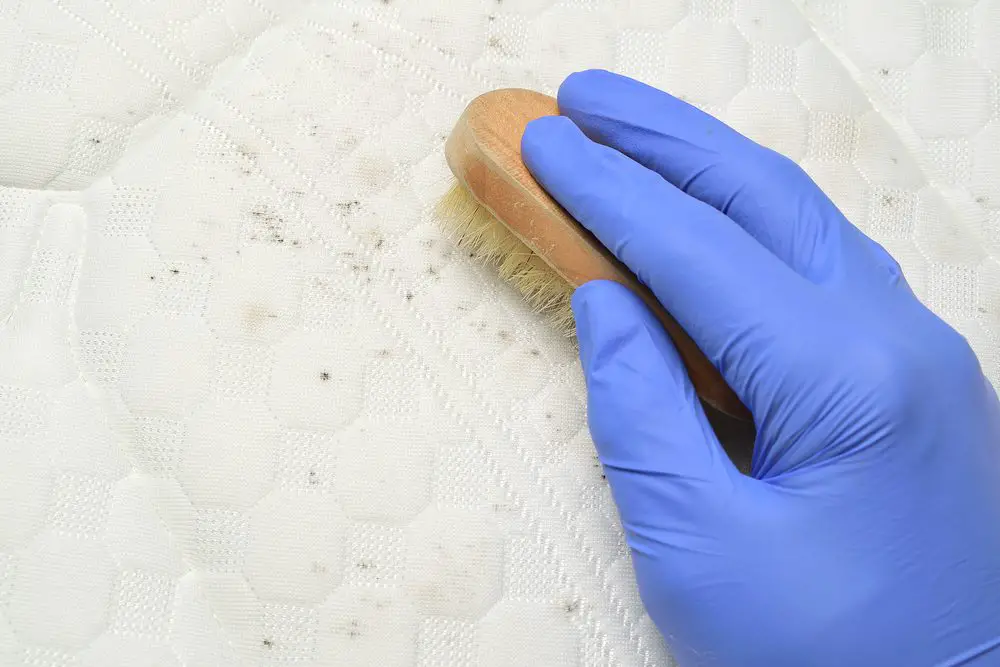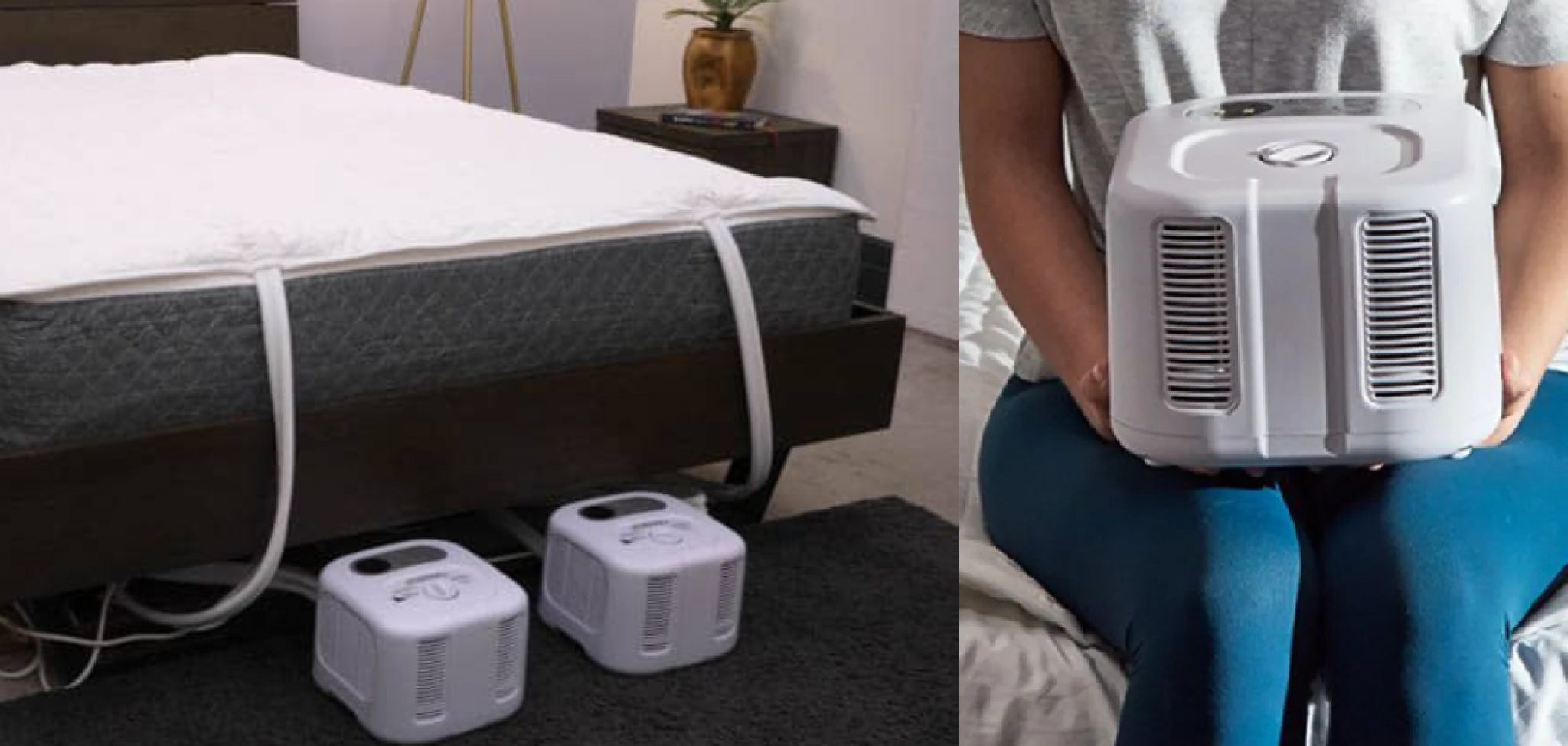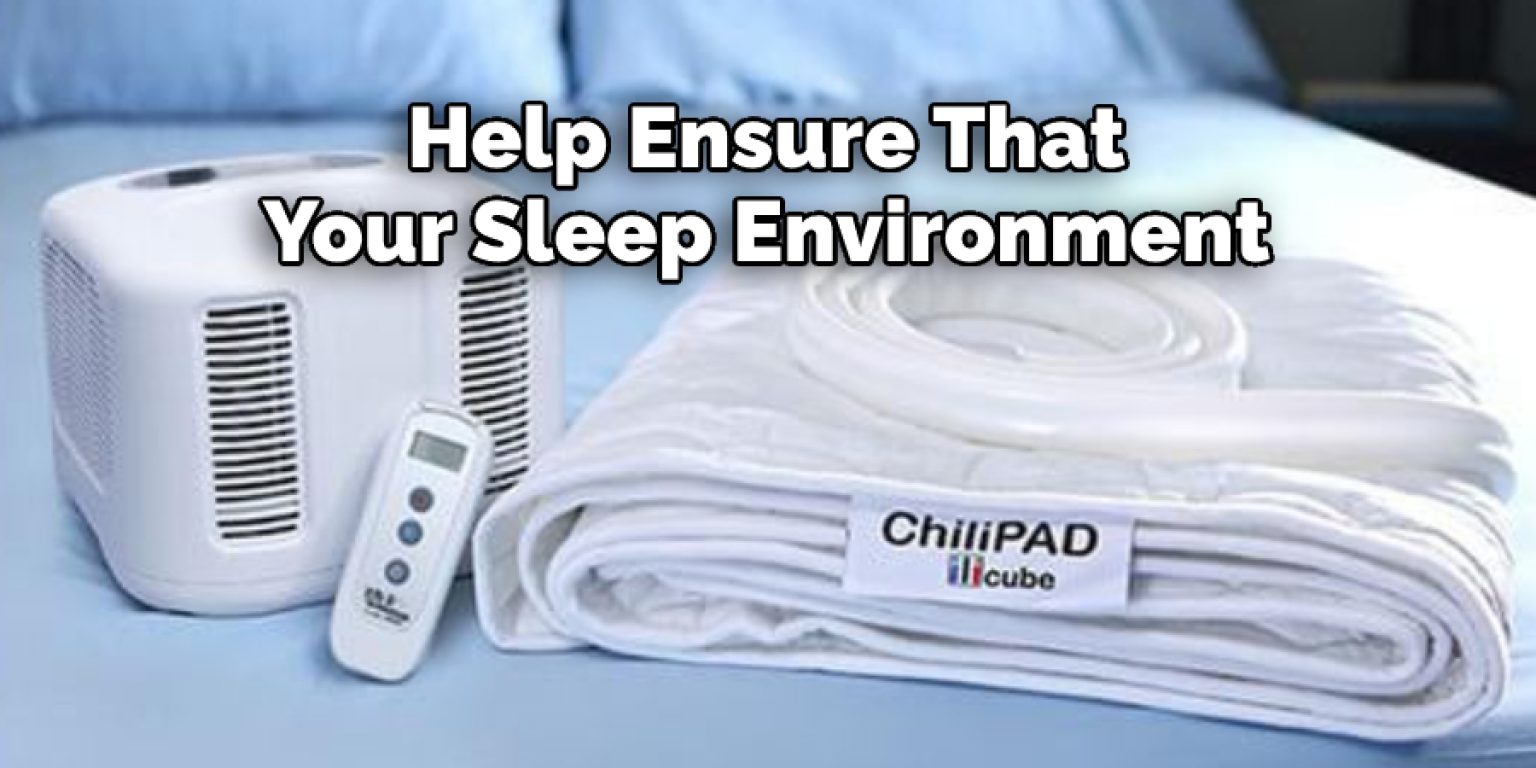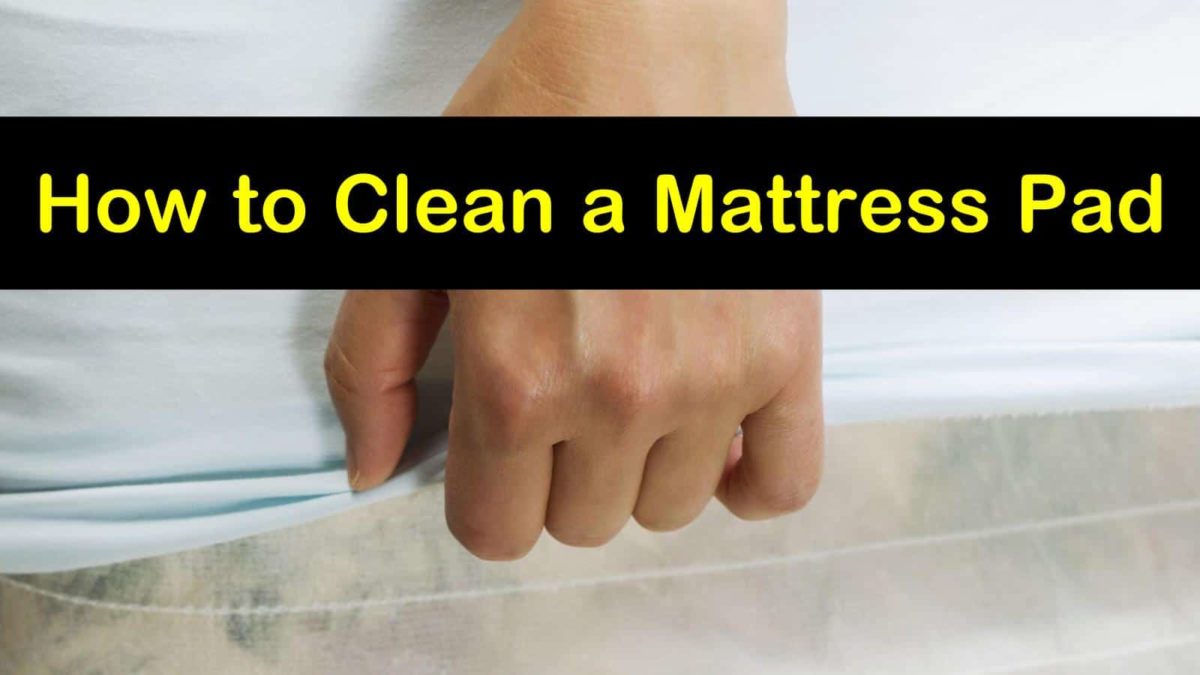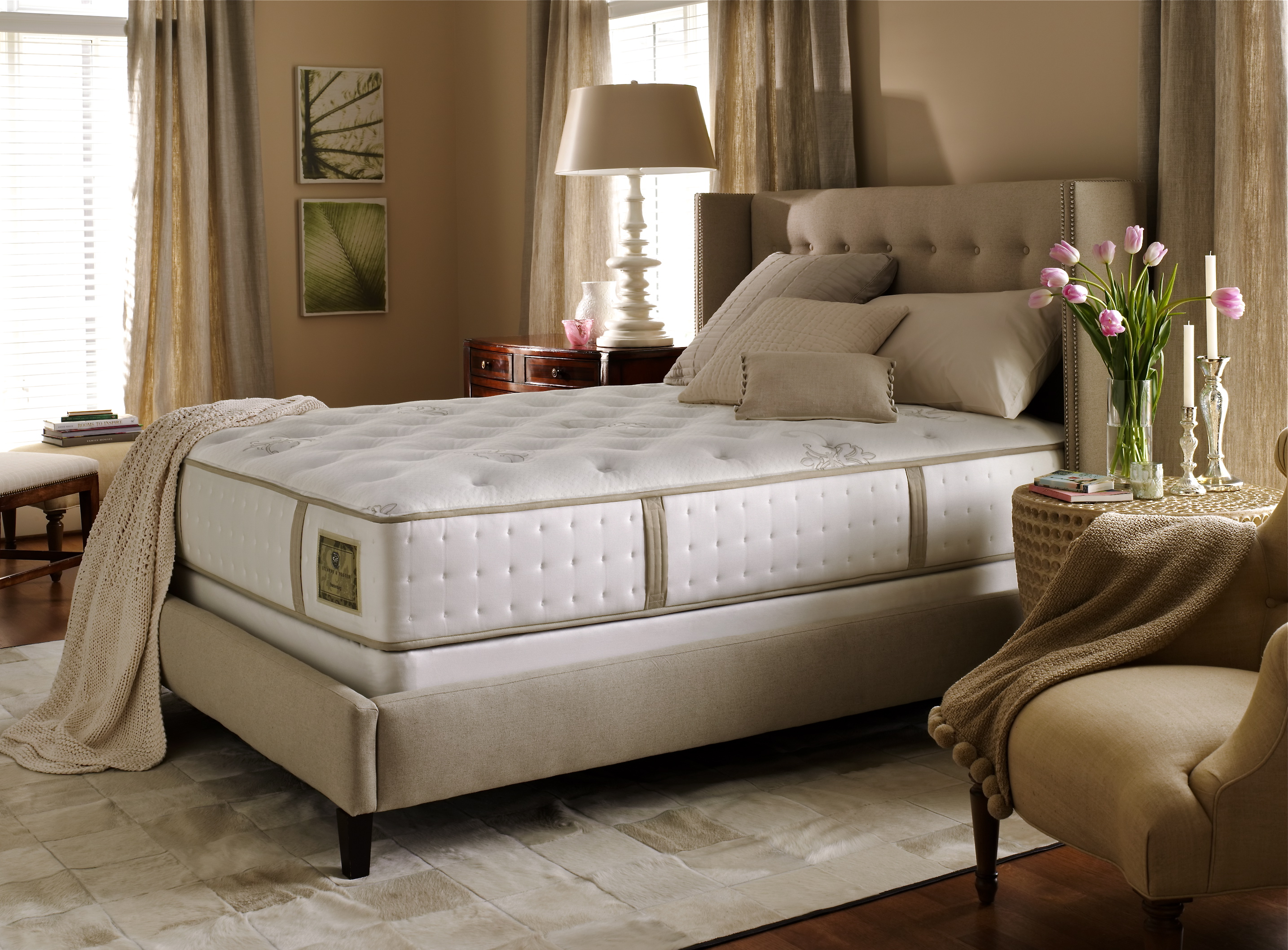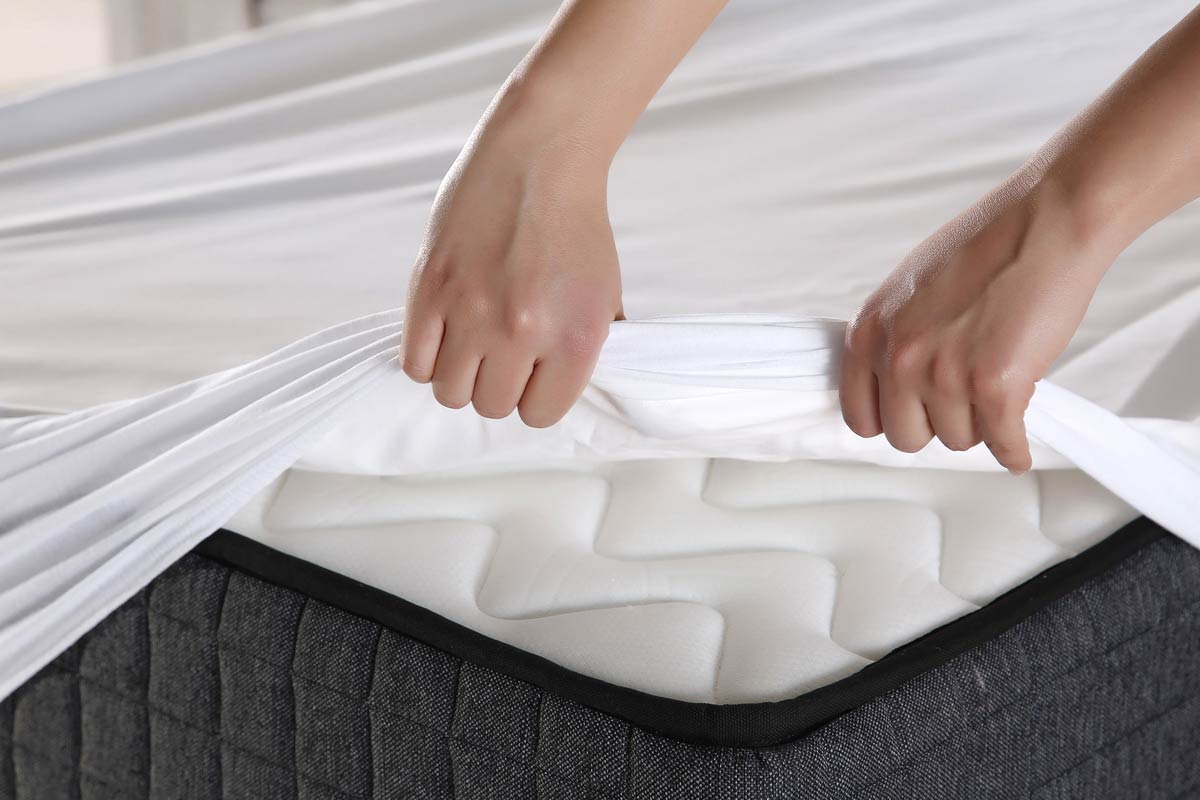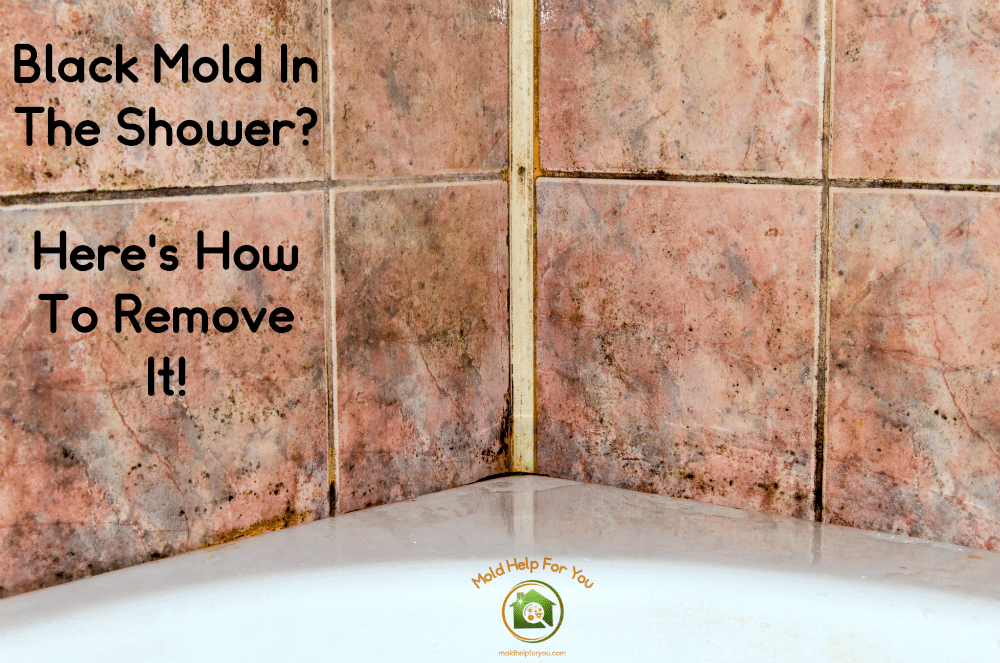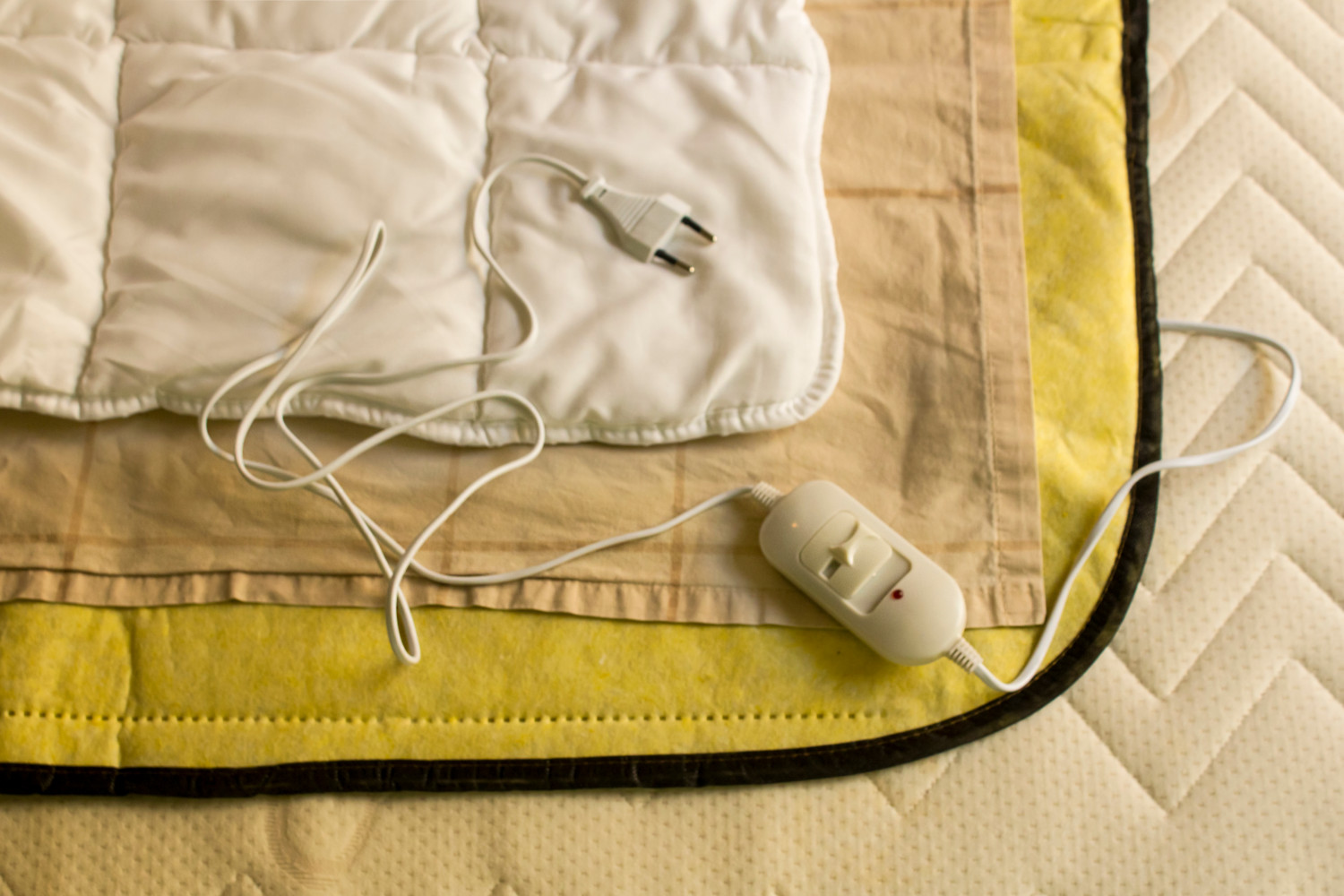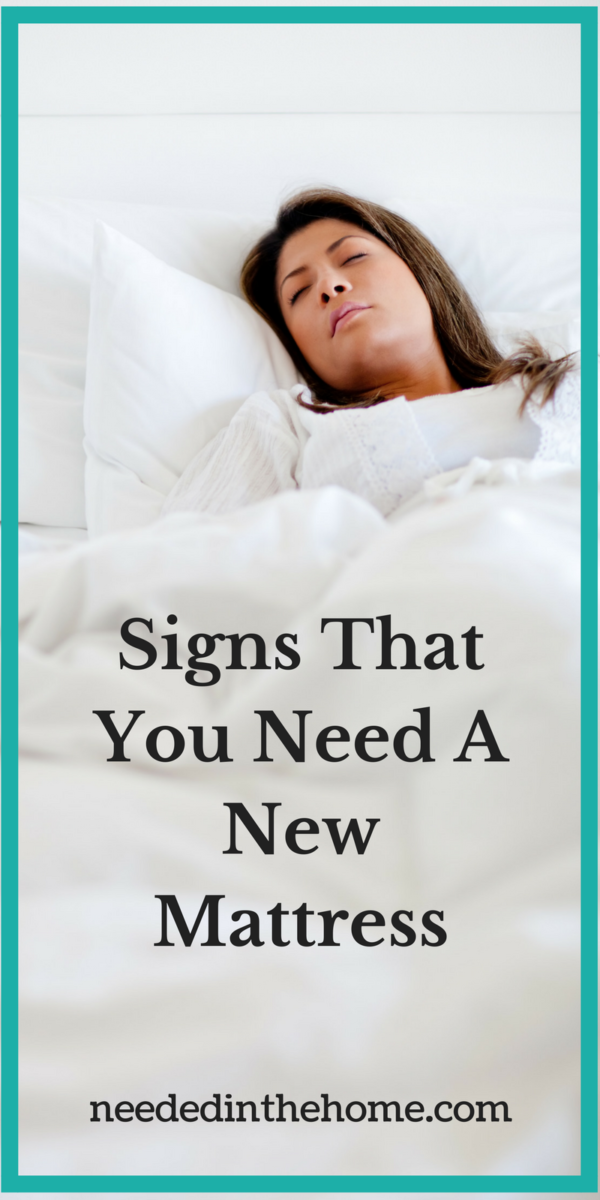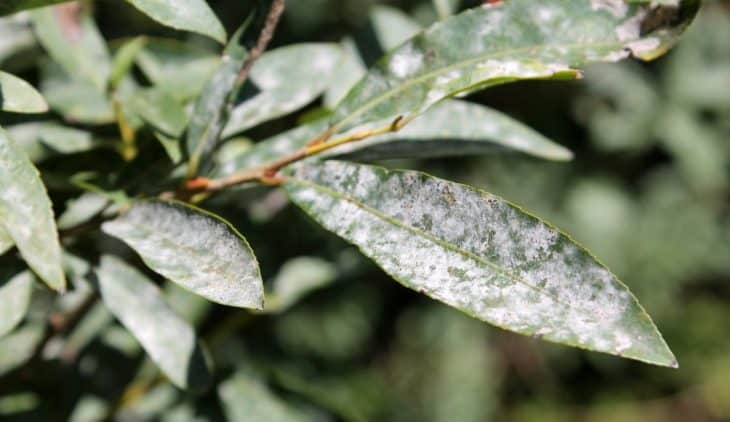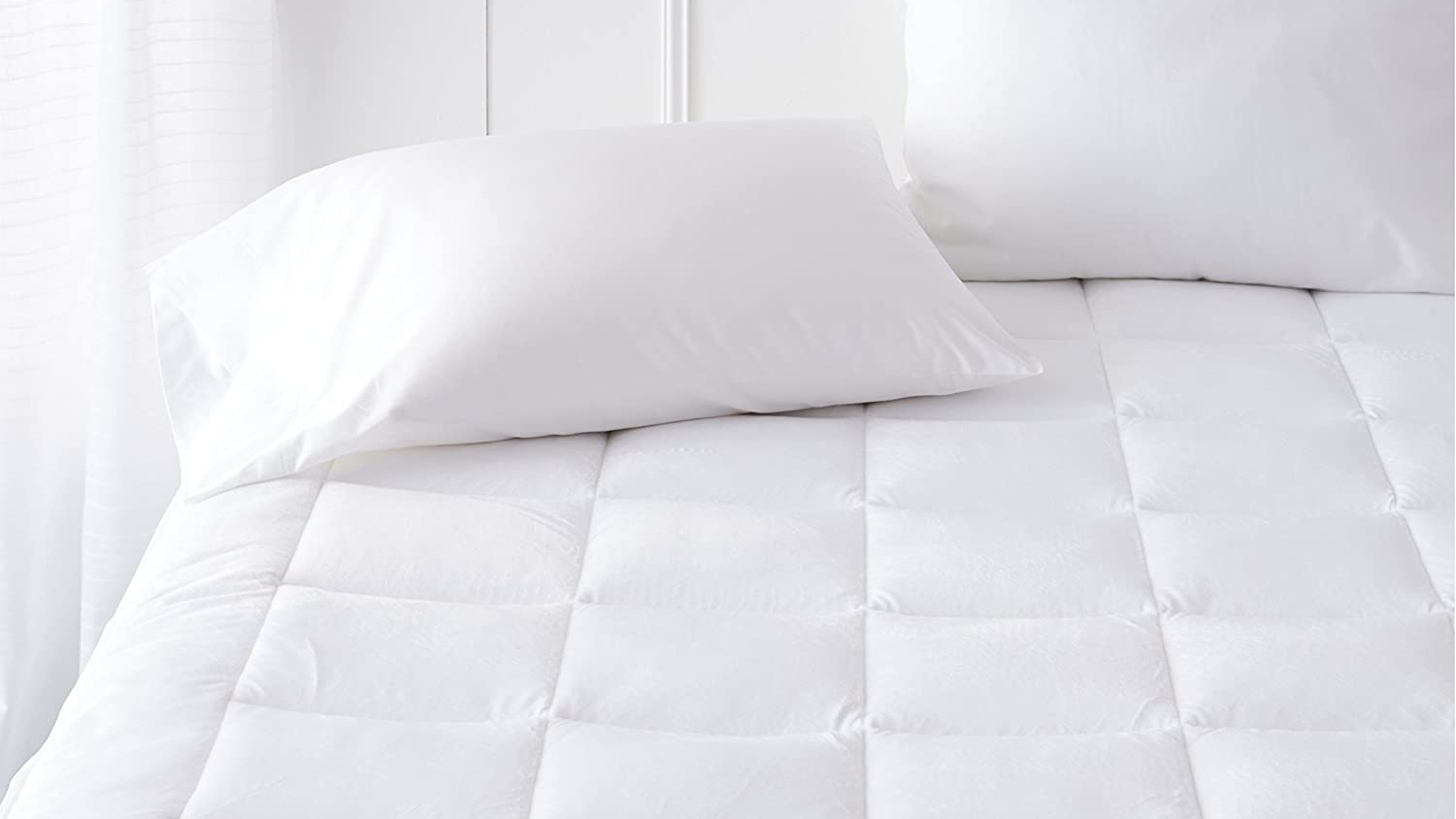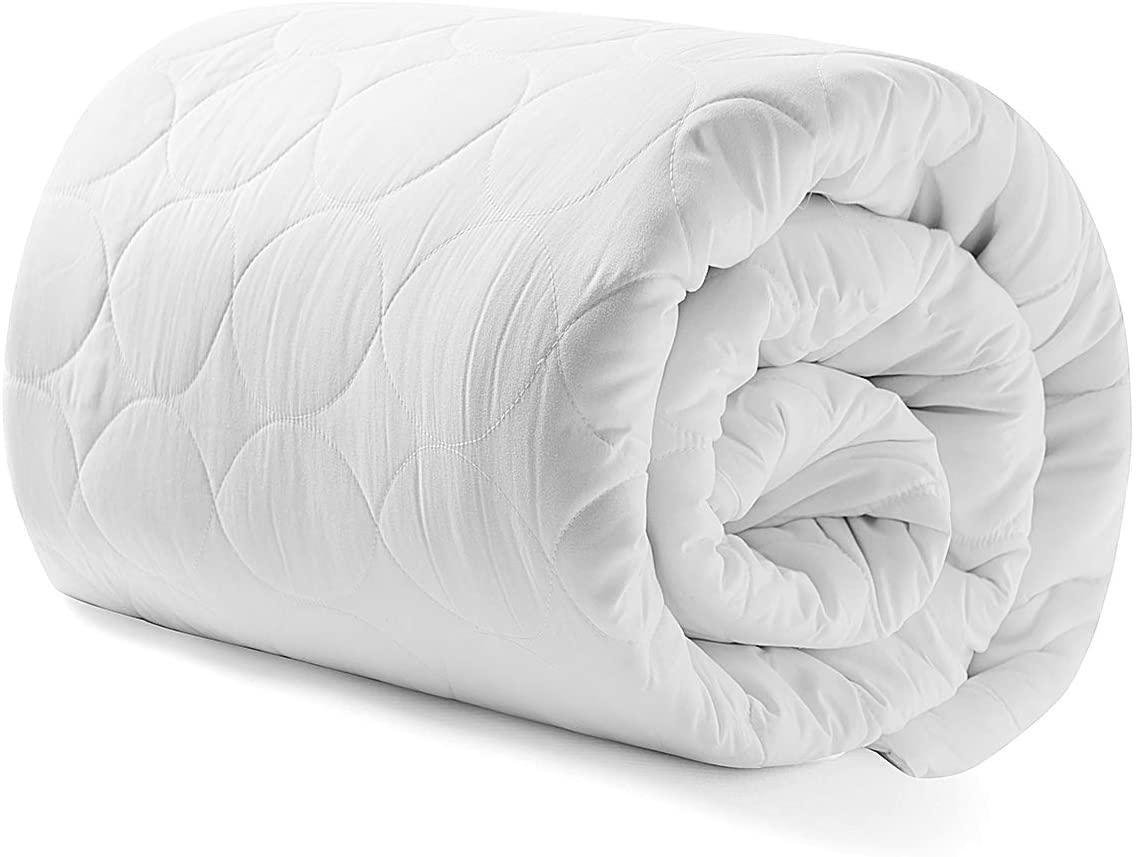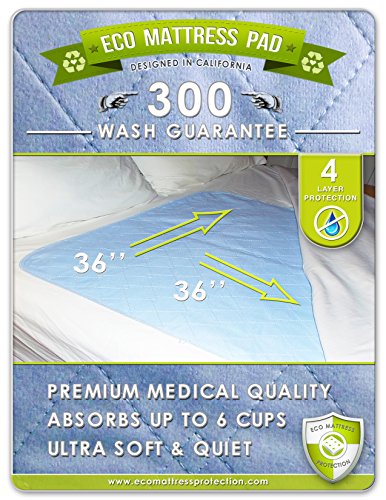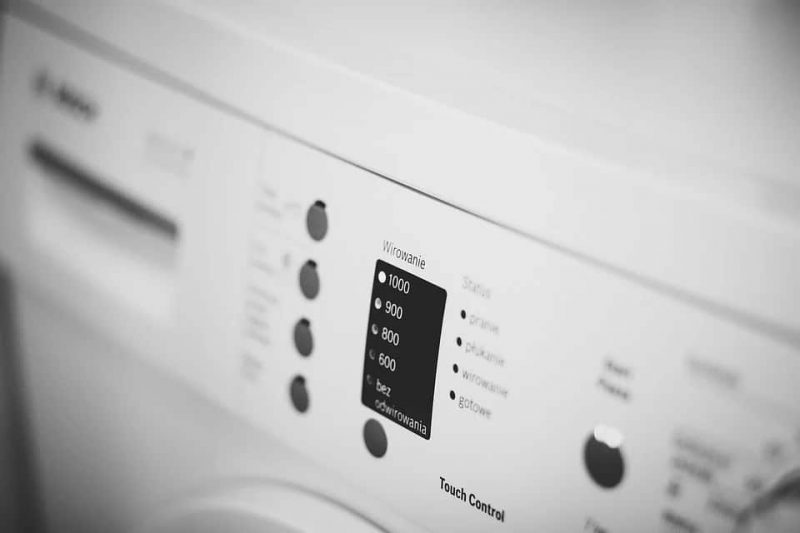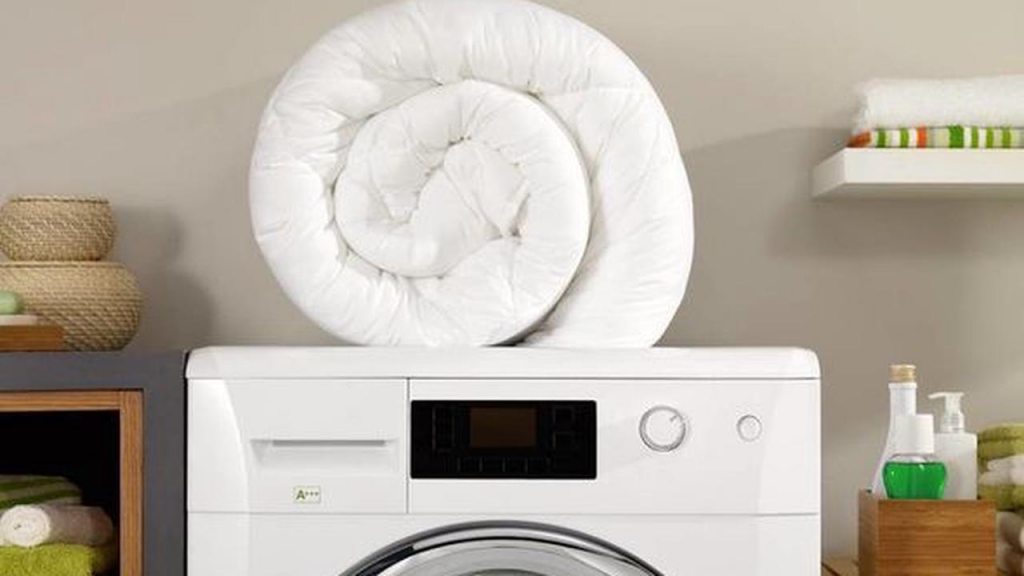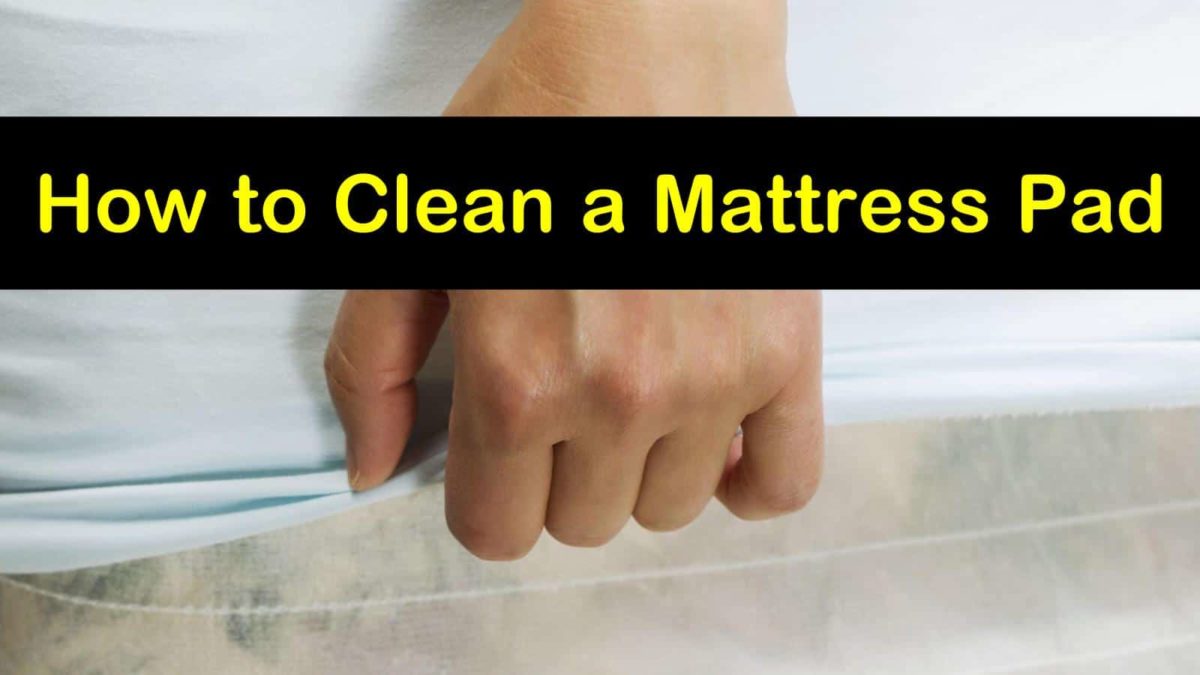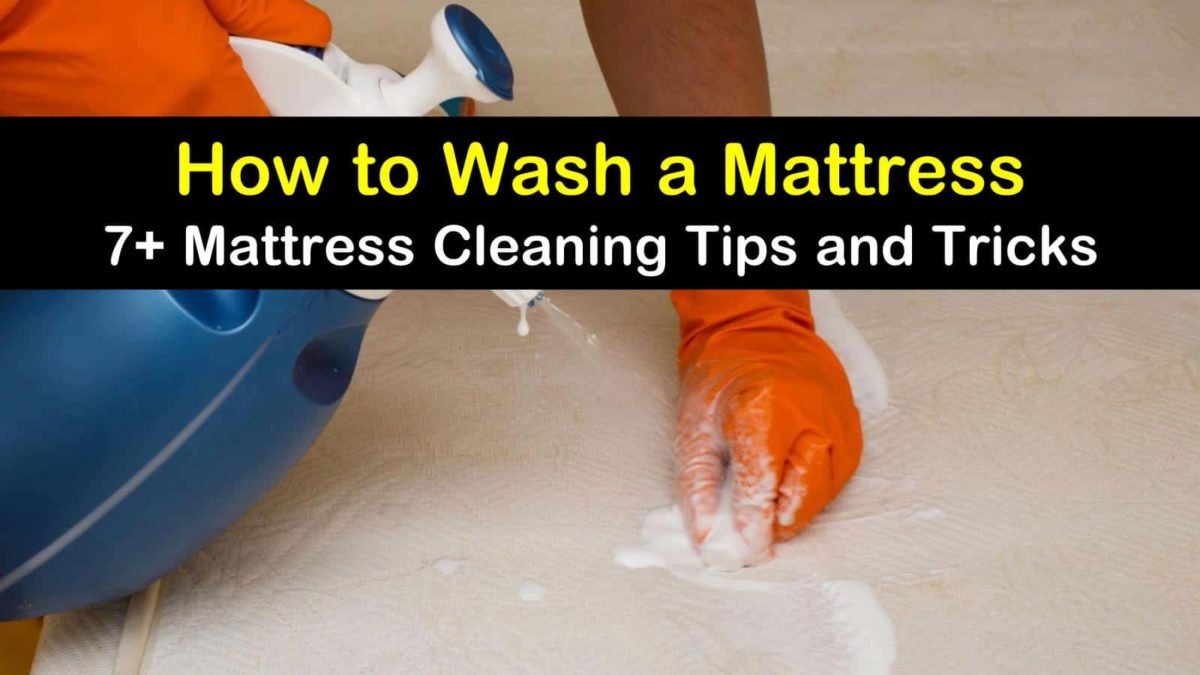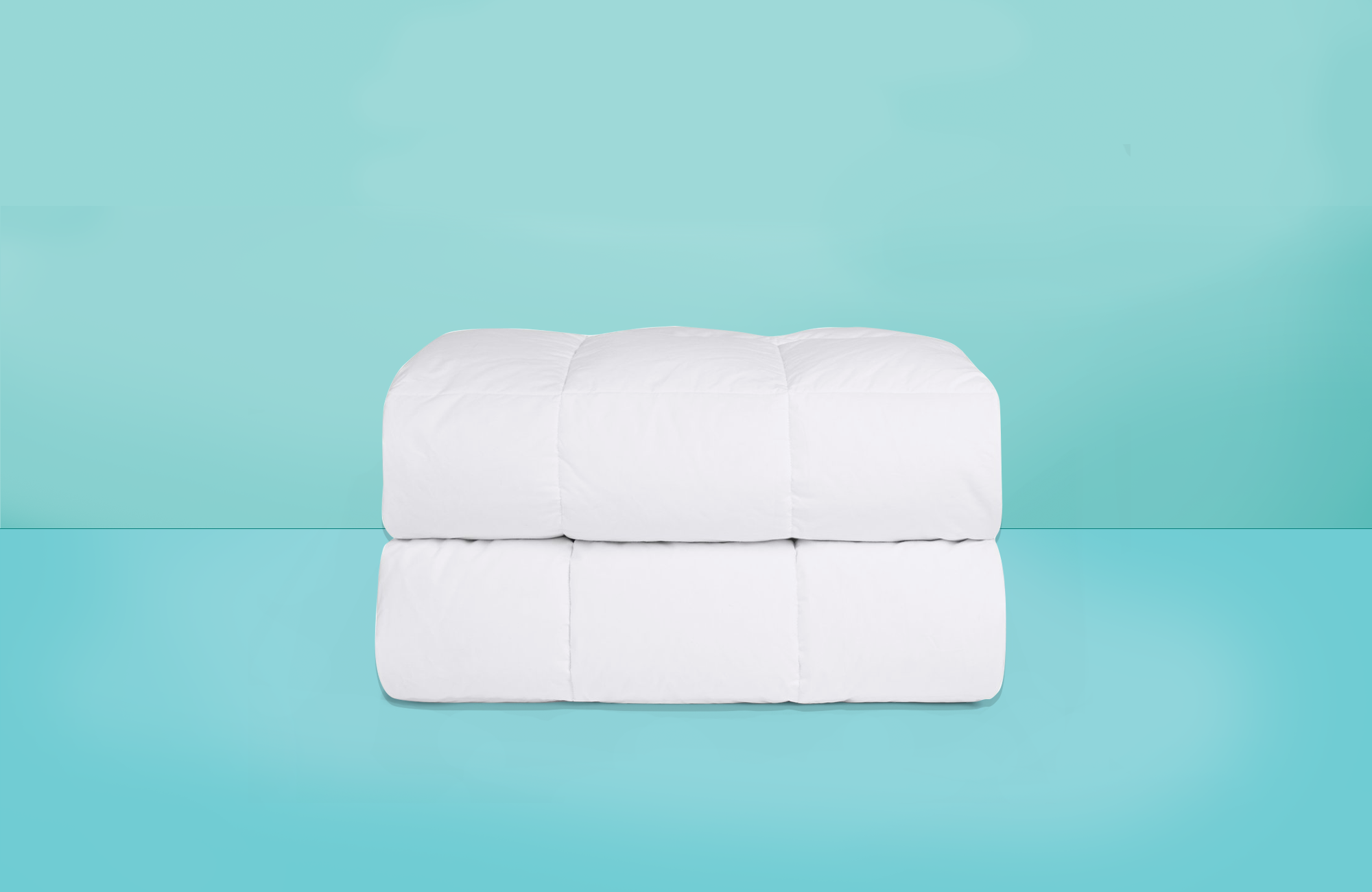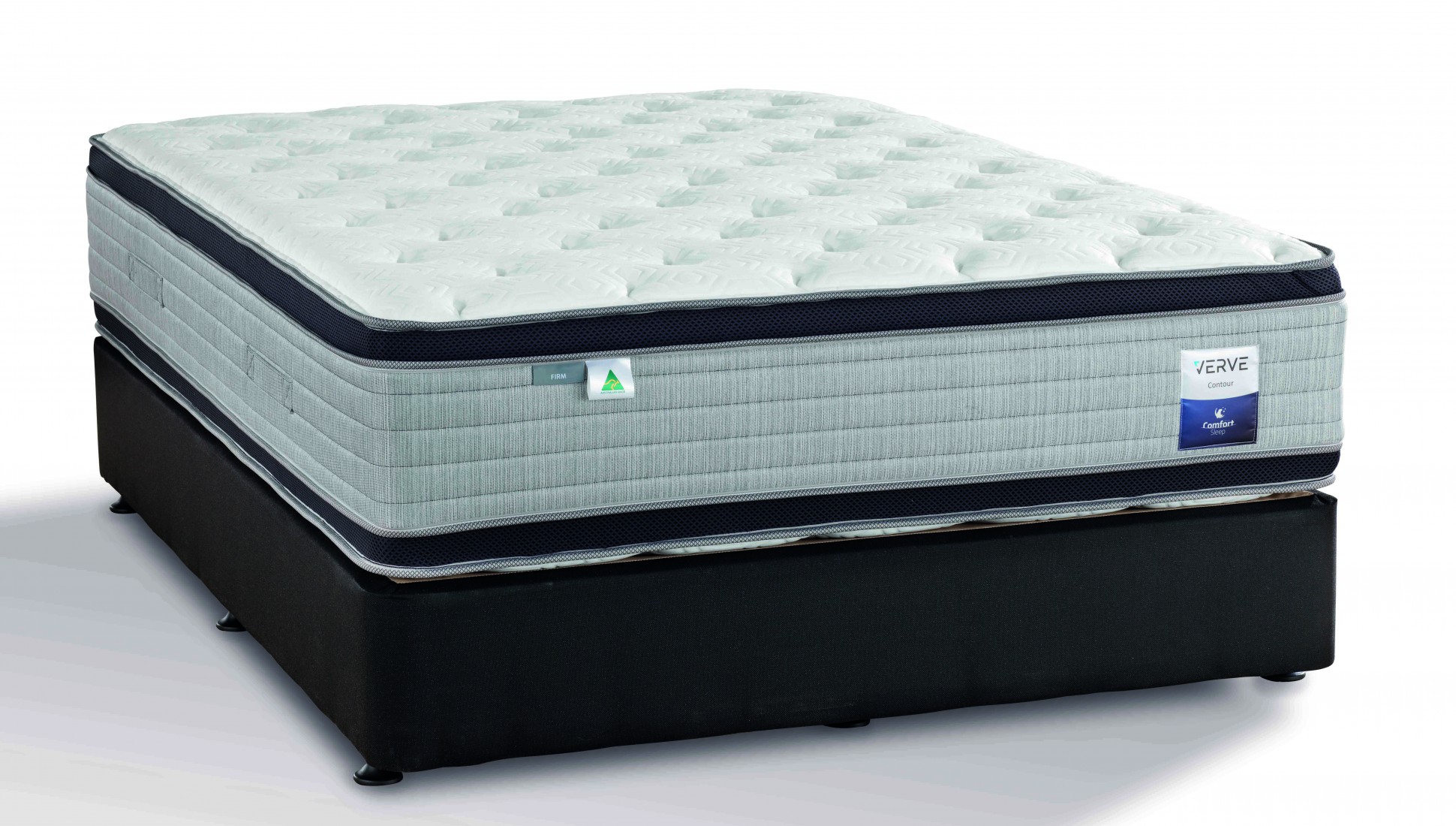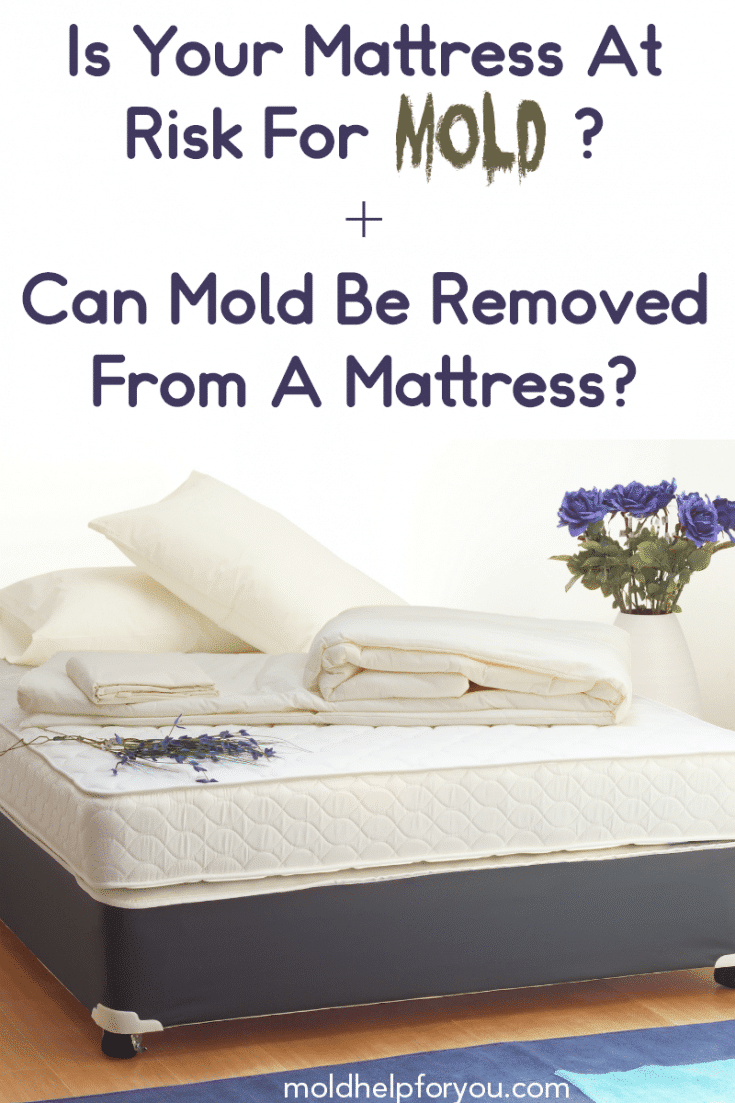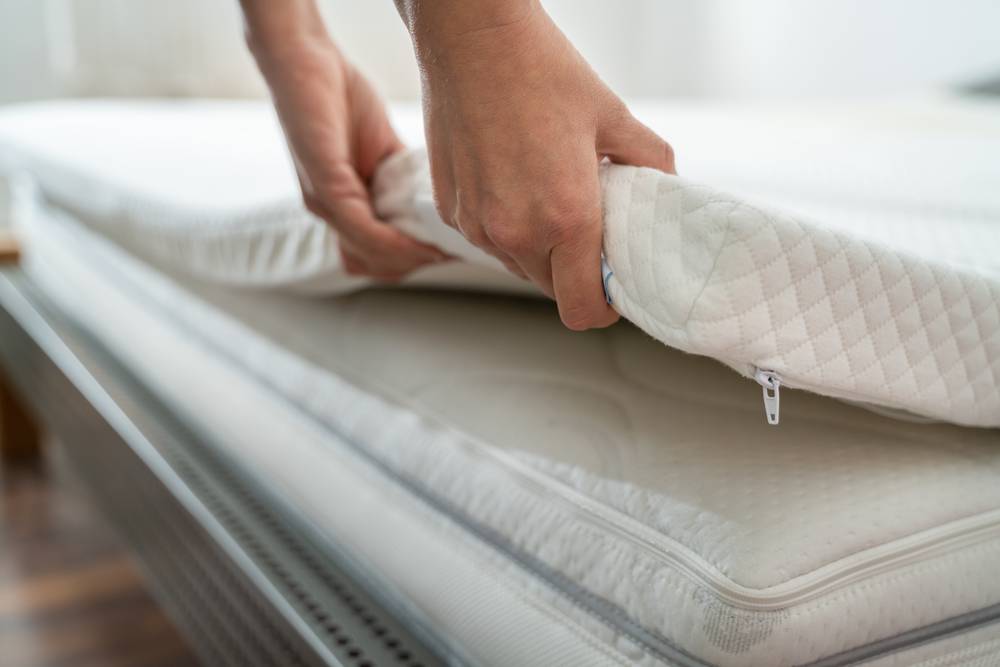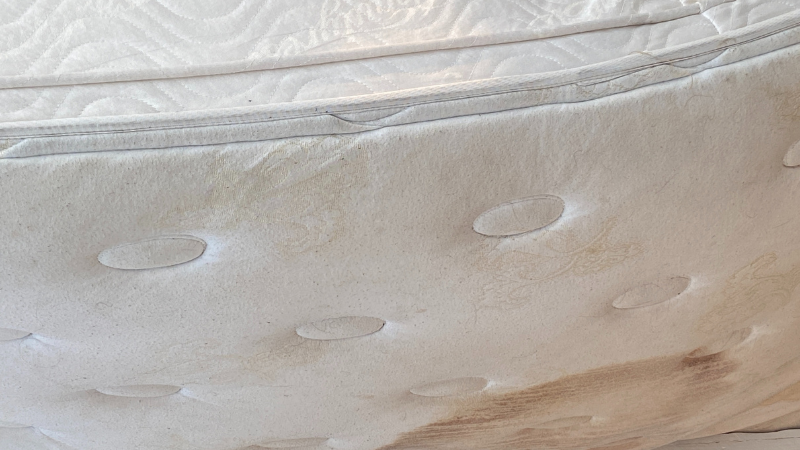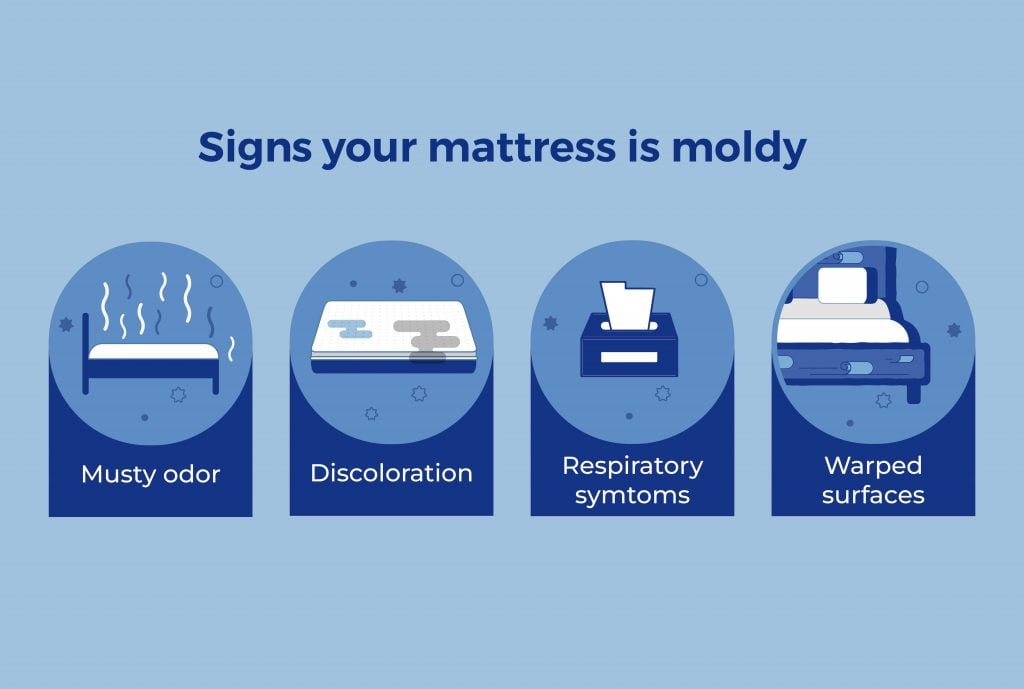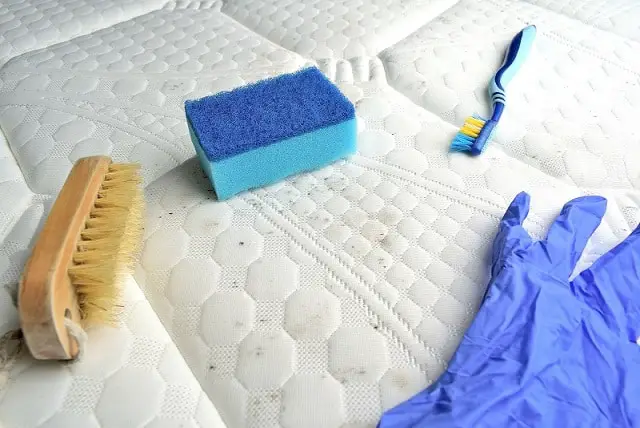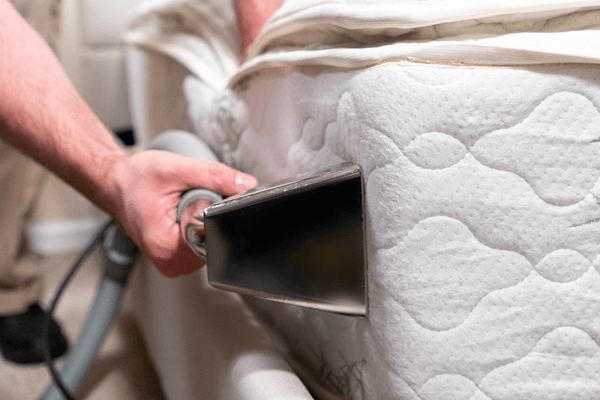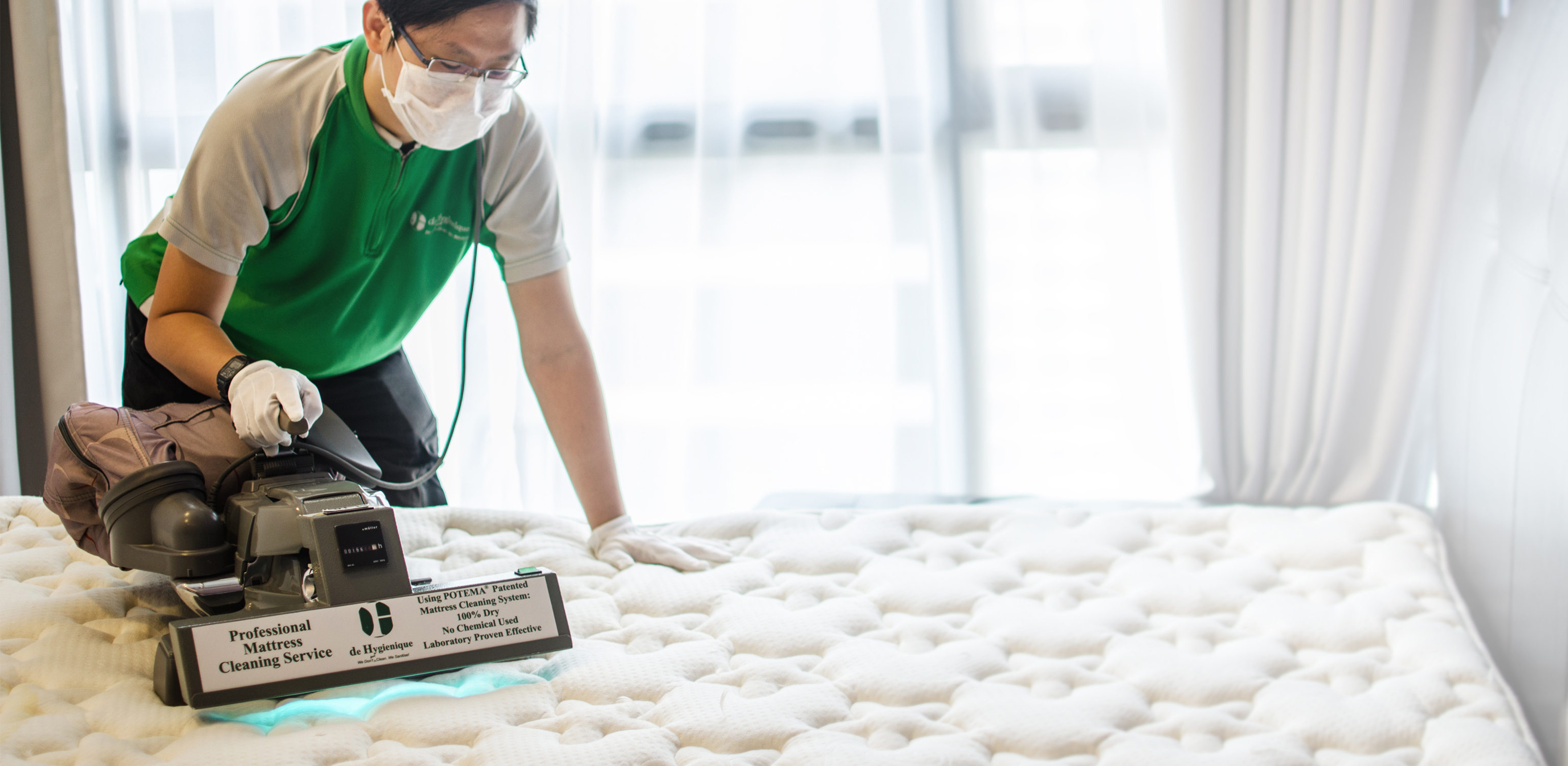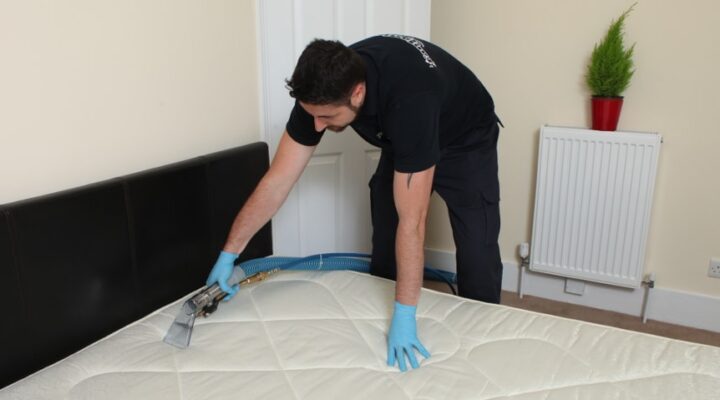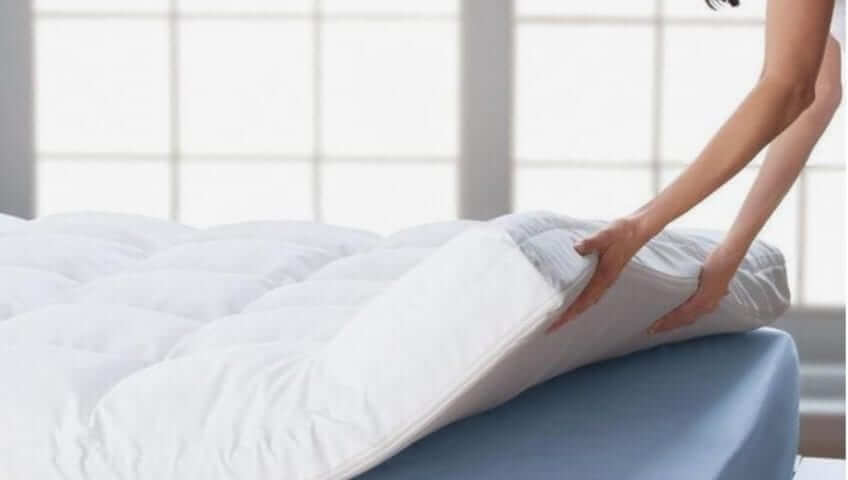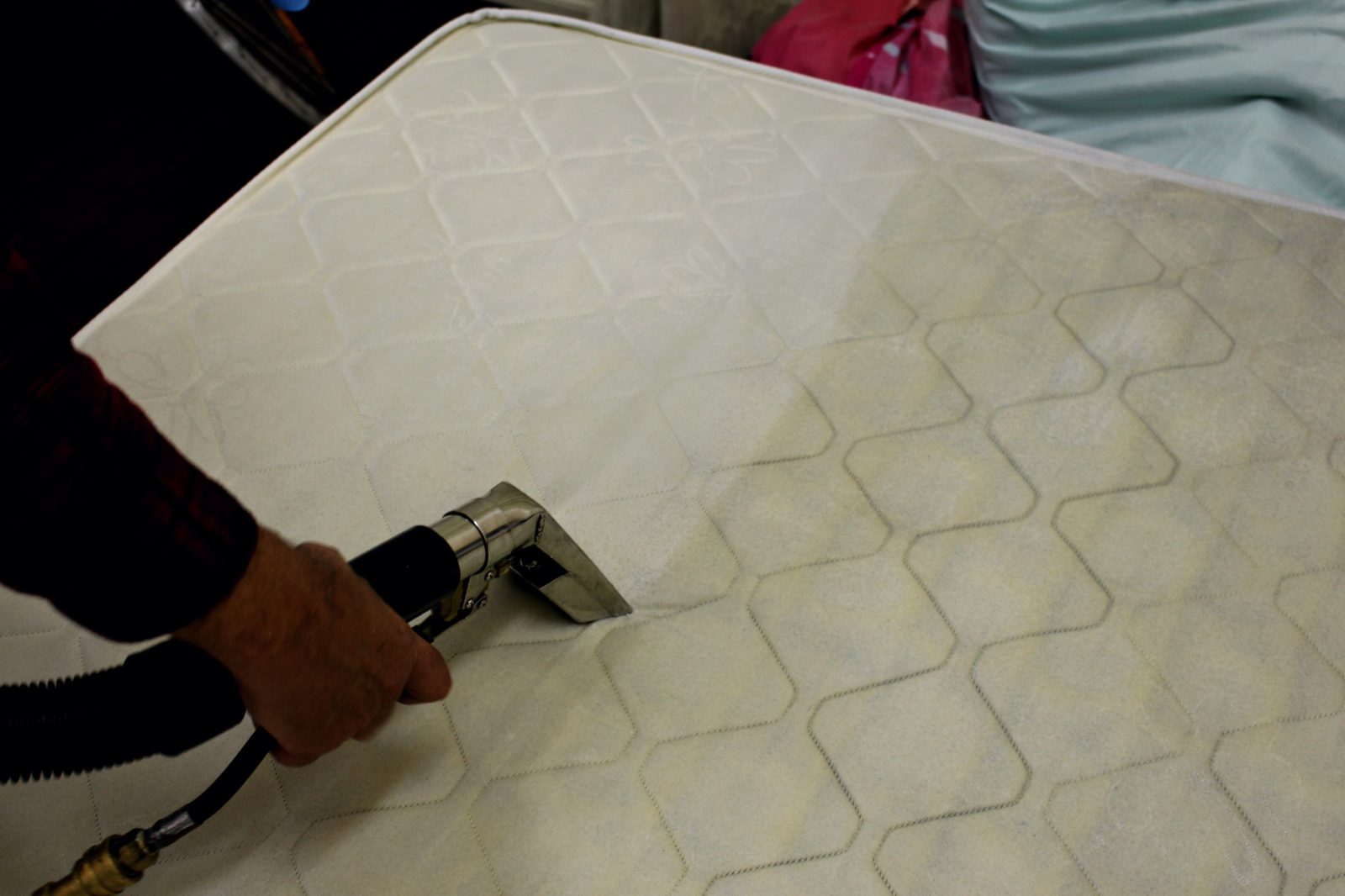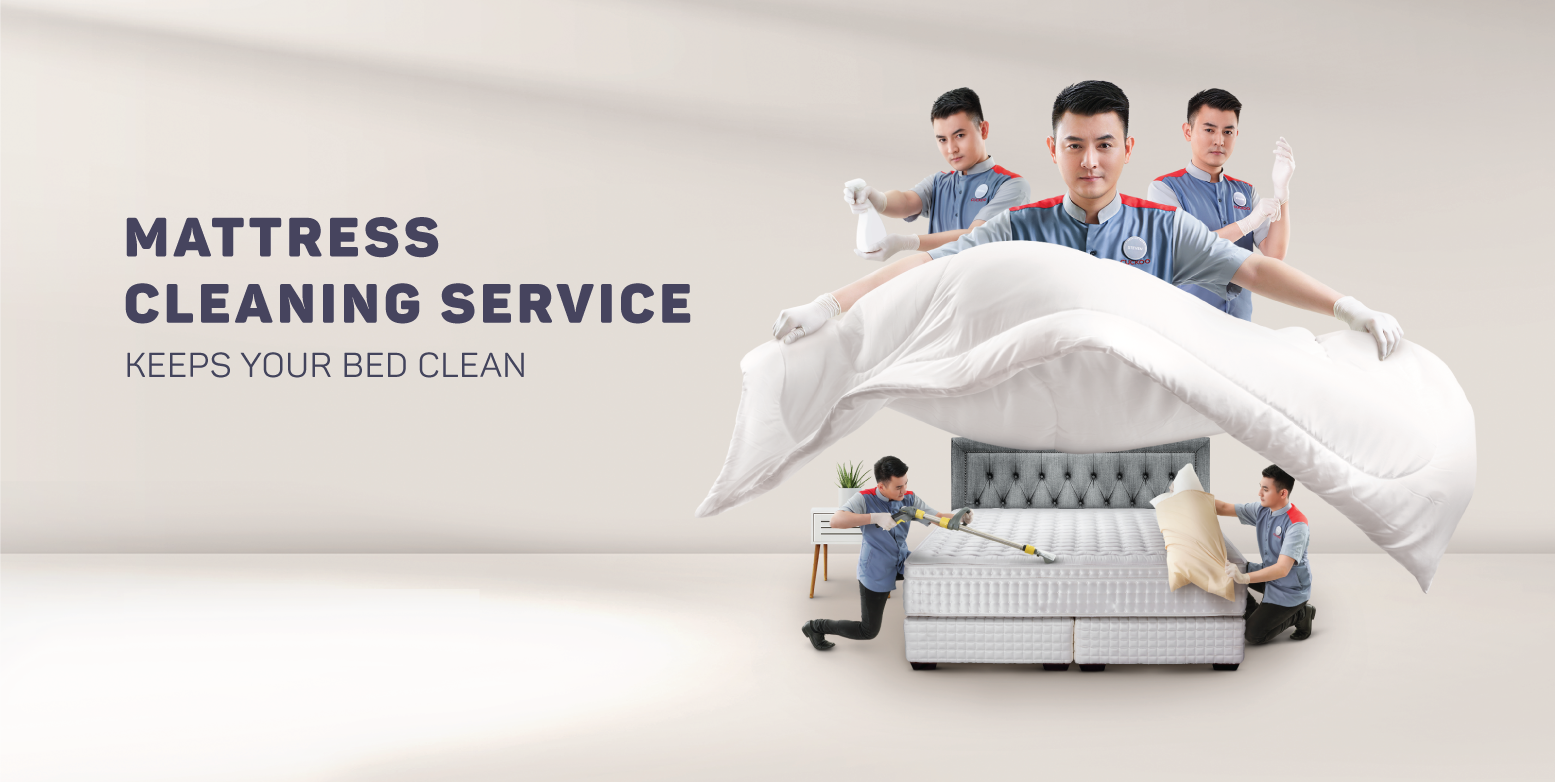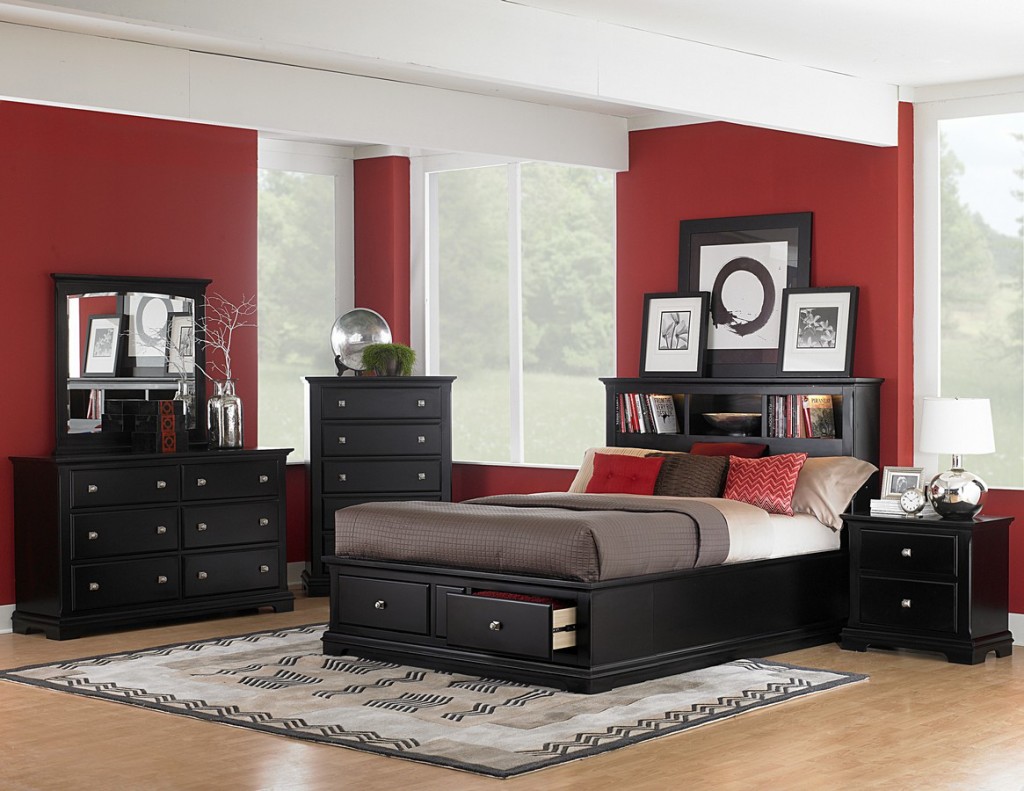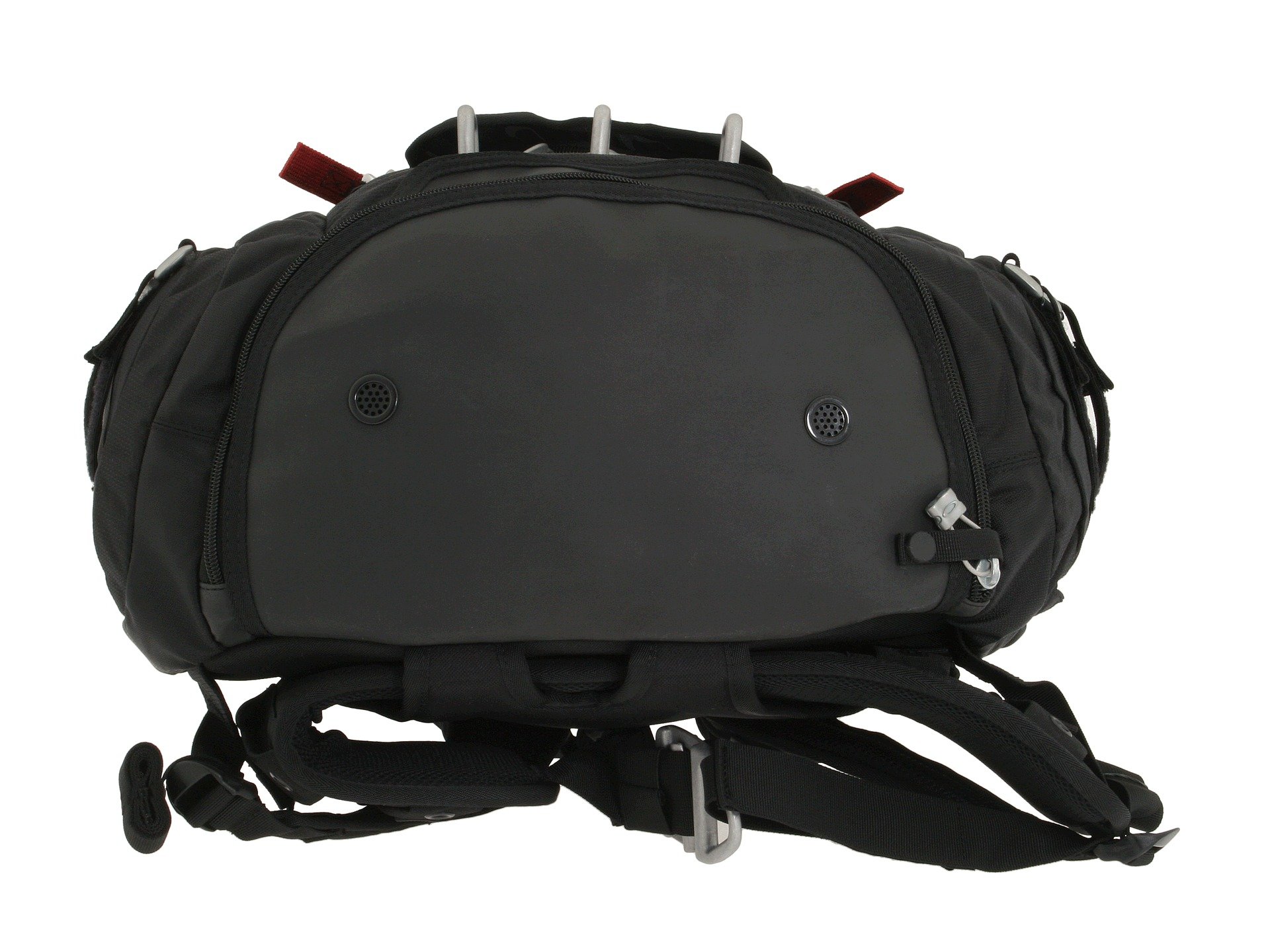Dealing with mildew on your mattress pad can be a frustrating and unpleasant experience. Not only can it cause an unpleasant odor, but it can also lead to health issues if left untreated. However, with the right methods and products, you can easily remove mildew from your mattress pad and prevent it from coming back. Mildew is a type of fungus that thrives in damp, humid environments. This makes your mattress pad the perfect breeding ground for mildew, especially if you live in a humid climate or tend to sweat a lot while sleeping. But don't worry, there are several effective ways to get rid of mildew and keep your mattress pad fresh and clean.How to Remove Mildew from a Mattress Pad
The first step in removing mildew from your mattress pad is to clean it thoroughly. Start by removing the mattress pad from your bed and checking for any visible signs of mildew. If you see any dark spots or discoloration, there is a high chance that mildew has started to grow. You can then spot clean the affected areas using a mixture of equal parts white vinegar and water. Simply spray the solution onto the mildew spots and let it sit for 15 minutes before scrubbing with a clean cloth. Vinegar is a natural disinfectant and can effectively kill mildew without damaging your mattress pad.How to Clean a Mattress Pad with Mildew
If the vinegar and water solution doesn't work, you can try using a commercial mildew remover. Look for products that are specifically designed for use on fabric and follow the instructions carefully. Make sure to test the product on a small, inconspicuous area of your mattress pad first to ensure it doesn't cause any discoloration or damage. Another effective product for removing mildew is hydrogen peroxide. You can mix equal parts hydrogen peroxide and water and spray it onto the mildew spots. Let it sit for 10 minutes before blotting it with a clean cloth. Repeat the process until the mildew is completely gone.Best Products for Removing Mildew from Mattress Pads
If you prefer natural and DIY methods, there are a few options you can try to remove mildew from your mattress pad. One method is to mix a cup of baking soda with a few drops of tea tree oil and sprinkle it onto the affected areas. Let it sit for a few hours before vacuuming it up. Baking soda is a natural deodorizer, while tea tree oil has antifungal properties that can help kill mildew. You can also try using a mixture of lemon juice and salt. Simply rub the mixture onto the mildew spots and let it sit for 30 minutes before rinsing it off with warm water. Lemon juice is acidic and can help break down and remove mildew, while salt can act as a gentle abrasive to help scrub away any stubborn spots.DIY Mildew Removal for Mattress Pads
Prevention is key when it comes to keeping mildew away from your mattress pad. To prevent mildew growth, make sure to regularly wash and dry your mattress pad according to the manufacturer's instructions. This will help keep it clean and free of any excess moisture that can lead to mildew growth. You can also use a mattress pad protector to create a barrier between your body and the mattress pad. This can help absorb any sweat or moisture and prevent it from seeping into the mattress pad and creating the perfect environment for mildew to grow.Preventing Mildew on Mattress Pads
It's important to regularly check your mattress pad for any signs of mildew. Some common signs include dark spots, discoloration, and a musty odor. If you notice any of these signs, it's best to address the issue as soon as possible to prevent the mildew from spreading and potentially causing damage to your mattress pad.Signs of Mildew on a Mattress Pad
Regularly washing your mattress pad is crucial for preventing mildew growth. Most mattress pads can be washed in the washing machine, but make sure to check the care label first. Use a mild detergent and avoid using any harsh chemicals or bleach as they can damage the fabric and make it more susceptible to mildew growth. After washing, make sure to dry your mattress pad thoroughly before putting it back on your bed. You can either air dry it outdoors or use a low-heat setting on your dryer. Avoid high heat as it can shrink or damage the fabric.How to Wash a Mattress Pad to Prevent Mildew
In addition to the DIY methods mentioned earlier, there are a few other natural remedies you can try to prevent or treat mildew on your mattress pad. One option is to sprinkle some cornstarch onto the affected areas and let it sit for a few hours before vacuuming it up. Cornstarch can help absorb moisture and prevent mildew from growing. You can also use essential oils, such as lavender or eucalyptus, to keep mildew at bay. Simply mix a few drops of your chosen oil with water in a spray bottle and spritz it onto your mattress pad before putting it back on your bed. These oils have natural antifungal properties and can also help freshen up your mattress pad with a pleasant scent.Natural Remedies for Mildew on Mattress Pads
Drying your mattress pad properly is just as important as washing it. After washing, make sure to remove as much moisture as possible before drying. You can do this by gently squeezing or rolling the mattress pad in a clean towel. As mentioned earlier, avoid using high heat when drying your mattress pad. Instead, opt for a low-heat setting or air dry it outdoors if possible. You can also add a few clean, dry towels to the dryer to help absorb excess moisture and speed up the drying process.How to Dry a Mattress Pad to Prevent Mildew
If all else fails, or if your mattress pad is heavily infested with mildew, it may be best to seek professional cleaning services. Professional cleaners have the necessary equipment and expertise to deep clean and remove mildew from your mattress pad without causing any damage. However, professional cleaning can be costly, so it's important to regularly maintain and clean your mattress pad to prevent mildew growth and the need for professional services. By following these tips and methods, you can effectively remove mildew from your mattress pad and keep it clean and fresh. Remember to regularly check your mattress pad for any signs of mildew and take necessary precautions to prevent it from coming back. With proper care and maintenance, you can ensure your mattress pad stays mildew-free and extends its lifespan.Professional Cleaning for Mildew on Mattress Pads
Mildew on Mattress Pad: Causes and Prevention
The Dangers of Mildew on Mattress Pads
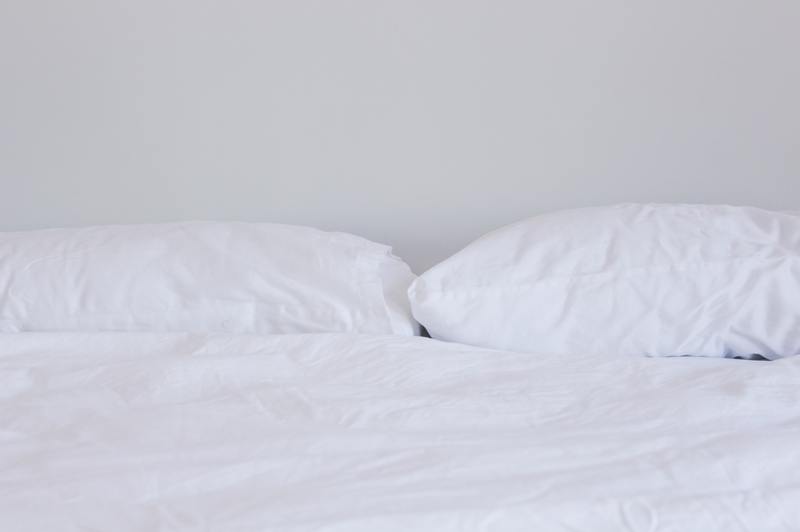 Mildew on mattress pads is a common problem that many homeowners face. Not only is it unsightly, but it can also pose potential health risks. Mildew is a type of fungus that thrives in moist and warm environments, making your mattress pad the perfect breeding ground. If left untreated, it can spread and cause damage to your mattress, as well as trigger respiratory issues and allergies. In this article, we will discuss the causes of mildew on mattress pads and how to prevent it from occurring.
Mildew on mattress pads is a common problem that many homeowners face. Not only is it unsightly, but it can also pose potential health risks. Mildew is a type of fungus that thrives in moist and warm environments, making your mattress pad the perfect breeding ground. If left untreated, it can spread and cause damage to your mattress, as well as trigger respiratory issues and allergies. In this article, we will discuss the causes of mildew on mattress pads and how to prevent it from occurring.
Causes of Mildew on Mattress Pads
 Mildew on mattress pads is primarily caused by a combination of moisture and lack of ventilation. When you sleep, your body produces sweat and oils that can seep into your mattress pad. If your bedroom has high humidity or poor air circulation, this moisture can get trapped in the pad, creating a breeding ground for mildew. Additionally, if your mattress pad is not regularly cleaned or replaced, it can accumulate dust, dead skin cells, and other debris, providing a food source for mildew to grow.
Mildew on mattress pads is primarily caused by a combination of moisture and lack of ventilation. When you sleep, your body produces sweat and oils that can seep into your mattress pad. If your bedroom has high humidity or poor air circulation, this moisture can get trapped in the pad, creating a breeding ground for mildew. Additionally, if your mattress pad is not regularly cleaned or replaced, it can accumulate dust, dead skin cells, and other debris, providing a food source for mildew to grow.
Preventing Mildew on Mattress Pads
 The best way to prevent mildew on your mattress pad is by regularly cleaning and maintaining it. Here are some tips to keep your mattress pad mildew-free:
1. Use a Mattress Pad Cover
A mattress pad cover acts as a protective barrier between your body and the mattress pad. It can help absorb moisture and prevent it from seeping into the pad. Plus, it's much easier to clean or replace a mattress pad cover than the actual pad itself.
2. Wash and Dry Your Mattress Pad Regularly
It is recommended to wash your mattress pad every 1-2 months, depending on how often you use it. Use hot water and a mild detergent to kill any mildew spores. After washing, make sure to completely dry the pad before putting it back on your mattress. You can also add a cup of white vinegar to the wash cycle to help eliminate any mildew smell.
3. Keep Your Bedroom Well-Ventilated
Proper air circulation is essential in preventing mildew growth. Make sure to open windows or use a fan to keep your bedroom well-ventilated. You can also invest in a dehumidifier to reduce humidity levels in the room.
4. Replace Your Mattress Pad Every 1-2 Years
Even with regular cleaning, mattress pads can still accumulate bacteria and mildew over time. It is recommended to replace your mattress pad every 1-2 years to ensure it stays fresh and clean.
The best way to prevent mildew on your mattress pad is by regularly cleaning and maintaining it. Here are some tips to keep your mattress pad mildew-free:
1. Use a Mattress Pad Cover
A mattress pad cover acts as a protective barrier between your body and the mattress pad. It can help absorb moisture and prevent it from seeping into the pad. Plus, it's much easier to clean or replace a mattress pad cover than the actual pad itself.
2. Wash and Dry Your Mattress Pad Regularly
It is recommended to wash your mattress pad every 1-2 months, depending on how often you use it. Use hot water and a mild detergent to kill any mildew spores. After washing, make sure to completely dry the pad before putting it back on your mattress. You can also add a cup of white vinegar to the wash cycle to help eliminate any mildew smell.
3. Keep Your Bedroom Well-Ventilated
Proper air circulation is essential in preventing mildew growth. Make sure to open windows or use a fan to keep your bedroom well-ventilated. You can also invest in a dehumidifier to reduce humidity levels in the room.
4. Replace Your Mattress Pad Every 1-2 Years
Even with regular cleaning, mattress pads can still accumulate bacteria and mildew over time. It is recommended to replace your mattress pad every 1-2 years to ensure it stays fresh and clean.
Conclusion
 Mildew on mattress pads is a common issue, but it can be easily prevented by following these tips. By regularly cleaning and maintaining your mattress pad, you can ensure a healthy and hygienic sleep environment. Don't let mildew ruin your mattress and your health – take the necessary precautions to keep it at bay.
Mildew on mattress pads is a common issue, but it can be easily prevented by following these tips. By regularly cleaning and maintaining your mattress pad, you can ensure a healthy and hygienic sleep environment. Don't let mildew ruin your mattress and your health – take the necessary precautions to keep it at bay.


